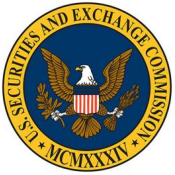Thanks to Lightning Network, the Bitcoin network can overtake VISA in the speed and number of transactions
According to Christian Decker (Core Tech Engineer at Blockstream), each Lightning Network channel can handle 500 transactions per second.
If such channels are more than a thousand, the Bitcoin network throughput capacity will overtake such large payment systems as VISA. Lightning Network provides much more privacy because transactions are combined into groups and it is not possible for investigators to identify, from and to whom the transaction has been sent. At present, 1700 LN-nodes operate on the bitcoin network.
Morgan Stanley: Cryptocurrencies will change the approach of Central Bank to the liquidation of the financial crisis consequences
Cryptocurrencies can allow central banks to lower their interest rates in the negative zone more aggressively during the next crisis period, thus mitigating the consequences of the financial crisis.
The analysts of Morgan Stanley have come to this conclusion, recently publishing a report in which they reported on the results in the research devoted to the possible variants of the use of cryptocurrencies by central banks.
The boom of the unseen popularity of Bitcoin and other digital assets has encouraged the governments in different countries to explore this phenomenon as well as the potential for the use and emissions of cryptocurrencies. The team of the experts of Morgan Stanley highlighted some areas where central banks could use cryptocurrencies, at the same time, pointing out that the purpose of the research did not concern recommendations on the introduction of digital fiat currencies.
One of the most interesting potential uses of cryptocurrenciesis the monetary policy sphere.
According to the bank analysts, the digital currencies would give the possibility to central banks more aggressively than before to lower interest rates in the in the negative zone, if such a need arises in the future during a serious financial crisis.
During the last crisis, the World Bank aggressively lowered interest rates in an effort to protect consumers and creditors from the worst consequences, while some regulators, including Sweden, Denmark, Japan and the Eurozone, lowered rates to a negative level. In several states, today, rates, remain on negative level, although no central bank has summoned up courage to exceed the -0.5% mark. Now, according to Morgan Stanley, cryptocurrencies can change this situation.
Theoretically, the monetary system which is 100% digital can afford lower negative rates. And this idea seems attractive to central banks. Banknotes and coins, respectively, cash which is in free circulation restricts the CB's ability to speed up a segment of deposit rates, driving it to negative zone. The version of digital money can theoretically allow the introduction of negative rates for all the money in the internal circulation of any economy.
– claim the analysts of Morgan Stanley.
Such a thought can become a good consolation for many of the world's CBs. We remind you that at the end of 2017, the experts of the UBS Investment Bank wrote that, when the next financial crisis occurs, in order to mitigate effects, the leading economies may be forced to lower rates to -5%. It is practically impossible by using traditional monetary policy tools, but under the umbrella of the CB, cryptocurrency could make this possible.
Of course, as with any experimental idea, it involves certain potential disadvantages. Morgan Stanley points out that maintaining a rate in the negative zone over a long period of time ultimately involves problems in banks, and can contribute to a decline in economic growth.
During the period of the last half-year, CB's interest in the digital asset segment has increased significantly. The Bank of England has created a special working group to explore the benefits of using cryptocurrency. In Sweden, Riksbank is considering the launch of the virtual currency “e-krona”. But other regulators are more skeptical. The head of the Deutsche Bundesbank Jens Weidmann warned last year that currencies similar to Bitcoin are potentially able to increase the magnitude of the negative effects of financial crises in the future.
He added that in his view, central banks would ultimately will create their own cryptocurrencies to convince the general population about the security of such assets, but such a step could increase the risk of depositor banks encountering risks during the coming crises.
The three-day Blockchain conference Consensus 2018 started in New York on 14 May
On Monday,14 May, in New York, a three day Blockchain conference Consensus 2018 started, which complemented the events of Blockchain Week NYC.

Last week, the Ethereal Summit was held within the framework of Blockchain Week NYC, as well as the Token Summit (17 May) and the Women on the Block conference were arranged. This is already the fourth blockchain conference organized by CoinDesk. The conference took place in Hilton Midtown in Manhattan and brought together around 8000 participants from all around the world and 250 experts and rapporteurs.
The Bitcoin price has fallen after the search in the South Korea's largest cryptocurrency stock Exchange
On Friday, cryptocurrency exchange rates fell in response to the statement that the South Korean authorities have carried out searches in the country's largest cryptocurrency stock exchange - Upbit.
As a result, the drop in Friday's prices strengthened the decline of weekly overall cryptocurrency exchange rates.
Bitcoin traded around $ 8602 at the Bitfinex Exchange on Friday, showing a decline of 7.9% per day. The Bitcoin prices hit $ 10,000 last week, reaching $ 9990, but BTC lost 12.7% this week after market capitalization.
After capitalization, the second largest cryptocurrency - Ethereum lost 10.2% on Friday and traded for around $ 682.5. During the week, Ethereum dropped by 16.7%. While, after the capitalization, the third cryptocurrency Ripple lost 13.2% on Friday and traded for around $ 0.692. During the week, it lost 23.5%. The fourth after capitalization is Bitcoin Cash, which fell by 13.7% to $ 1,419 on Friday, resulting in a total loss of 19.5% per week.
During the last week, the sale of cryptocurrencies took place, effected by a series of negative comments from the leading global investors. On Friday, all hopes of recovery were lost following the statement that the South Korean prosecutors had carried out searches in the country's largest cryptocurrency stock exchange Upbit.
According to the information provided by the news agency Yonhap, the searches are related to suspected fraud.
Of the other news informing about the decline in interest in cryptocurrencies, it is worth mentioning the statement of Nvidia's financial director Colette Kress, that her company is predicting a decline in demand for chips from the cryptocurrencies miners.
In the financial statement, published on Thursday, Nvidia announced that its quarterly revenue has reached the sum of $ 3.2 billion, while about 9% of this amount ($ 289 million) have come from the sale of video cards provided for mining.
While Kressa points out that the company predicts a drop in revenue by 65% - to around $ 100 million for the next quarter.
The Galaxy Digital Capital Management LP & Bloomberg launches a new cryptocurrency Index - Bloomberg Galaxy Crypto Index
In partnership with the investment fund Galaxy Digital Capital Management LP, the company Bloomberg has launched a new cryptocurrency index called the Bloomberg Galaxy Crypto Index (BGCI).

The index will follow the 10 most liquid cryptocurrencies: Bitcoin, Ethereum, Monero, Ripple, ZCash, Bitcoin Cash, EOS, Litecoin, Dash and Ethereum Classic. The billionaire Mike Novogratz is convinced that the launch of the new index is an important step towards recognition of the new assets of institutional investors.
We have added new cryptocurrency – Bitcoin Cash (BCH)
 1 comment
1 comment
XMLGold e-currency exchange site proudly confirms, that Bitcoin Cash now is available for exchanges.

Shortly, what is Bitcoin Cash (BCH)?
Bitcoin Cash is a digital currency founded in August of 2017, originating from a fork of Bitcoin (Classic). BCH magnifies the size of blocks, permitting more transactions to be processed.
In other words, Bitcoin Cash is peer-to-peer electronic money for the internet. BCH is a completely decentralized payment system, its activities are not regulated by a third party, such as a central bank. BCH varies from Bitcoin (Classic) in that it magnifies the block size from 1MB to 8MB. Bitcoin Cash also removes Segregated Witness or SegWit. The aim of Bitcoin Cash is to magnify the number of transactions that can be processed, which could let to compete of the volume of transactions with the payments systems like Visa etc.
With the help of XMLGold, now you will be able to convert Bitcoin Cash in many different popular e-currencies and cryptocurrencies like Perfect Money, AdvCash, Payeer, Bitcoin, ePay, Litecoin, Ethereum, SEPA, Wex code, Exmo code, Ecoin code, Online Bank Transfer, Tether , C-CEX, Cash, XMLToken BTC etc.
Ethereum has come under scrutiny of the regulators
Bitcoin is the biggest and most popular cryptocurrency, but the regulators have a little concern about this fact. Their focus is on other digital coins which, in the opinion of the regulators, are more like securities and have to be subjected to appropriate regulation. This is mainly the case with Ethereum – cryptocurrency, which has so far managed to stay out of sight of commissions, boards and agencies. But now they have come to the conclusion that the second largest cryptocurrencyin the world, with a market capitalization of more than $ 75 billion must follow the same rules as are applied to the shares.
Regulators look for familiar features in cryptocurrencies
The federal authorities regulating the trade of securities and raw material assets have carried out a research. They wanted to find out how much virtual currency creators affect their value, and whether this relationship is comparable to how the companies' strategies, financial indicators and management comments affect the dynamics of their stocks.
Some regulators consider Ethereum to be in a“grey zone”, and there is a suspicion that it was created as a result of illegal sale of securities in 2014. Within the framework of the Securities and Exchange Act of the US, companies must register such transactions with the SEC when issuing shares and bonds, as well as must provide the investors with complete information and warn them about all possible risks or offer these shares and bonds only to institutional investors and investors with large capital. Ethereum did not register the sales during the release in 2014, but the coins were sold to anyone who wanted to buy them.
Last week, the former CFTC chairman Gary Gensler announced that the cryptocurrencies, like ETH and XRP, are illegal securities.
The decision of the regulator to classify Ethereum as a security will provoke massive sales and cause major problems for exchanges, like Coinbase, which allows investors to buy and sell Ether without any restrictions. We remind you that Coinbase wants to receive a SEC broker licence, but this means that the problem concerning Ether may soon be on its agenda, as brokers cannot operate with unregistered securities.
The creators of cryptocurrency and even some industry lawyers are confused. They are dissatisfied with the fact that the SEC wants to include Ether, representing the assets of a new generation, in its outdated rules and standards.
Ether under the microscope
The regulators have figured out that the price dynamics of Ethereum is affected by major players, such as the Ethereum Foundation, who have created and are now responsible for the functioning and updating of the software. For example, the company pays bonuses to the programmers for eliminating vulnerabilities in the Ether code, thus providing improvements which can increase the value of cryptocurrency.
The government also examines other factors which provoke price fluctuations, while some of them contradict Ether as a security theory. For example, the government is investigating the dependency of the demand on the activities of the people who use Ether to launch attachments on this platform.
During the release in 2014, the company issued approximately 60 million coins and attracted 31 thousand bitcoins, or 18.3 million dollars. Meanwhile, the company attracted in such a way the funding for the creation of the Ethereum platform, while investors, possibly, bought the coins with an estimate that their value would increase when the product is ready, which is typical for the securities. One representative from the regulatory authorities has indicated that, in the light of all these factors, it is still in the “grey zone”. On 7 May, a meeting of the working group on this issue is planned, where the SEC and CFTC officials will meet.
Ethereum Foundation claims that it owns less than 1% of the total volume of the coins in circulation and its demand and supply are not controlled.
Another opinion
The supporters of Ether, including Andreessen Horowitz, do not support this approach, pointing out that no one controls the value of Ether – neither people nor companies. They argue that the functions of cryptocurrencygo beyond the limits of the traditional trading instruments.
Cryptocurrency is paid to the people who provide the implementation of the entire decentralized project by operating their software on their computers.
At the end of March, a group of venture capital companies, including the Andreessen Union Square Ventures Fund, sent a petition to the SEC with a proposal to make an exception for Ether as it has become so decentralized that it cannot be considered a security.
The experts of this branch argue that Ether-like virtual currencies become transformed into consumer products as soon as the project starts functioning. In other words, calculations are made and currencies are generated by the programmers all around the world, and not by the company and its management. Henseler indicated that there is no legal precedent for such a case. According to the opinion of Peter Van Valkenburgh, the director of the Coin Research Centre, by adding Ether to securities, the United States will destroy its innovative policy and cause a lot of useless barriers.
SBI GROUP plans to launch its cryptocurrency stock exchange
The Japanese financial services giant SBI GROUP plans to launch its cryptocurrency stock exchange SBI Virtual Currencies. Yoshitaka Kitao, the president of SBI Holding, approved the full scale implementation of SBI Virtual Currencies, which will provide that the new cryptocurrency stock exchange will be for the first time fully open for banks. SBI Virtual Currencies will support Bitcoin, Ethereum, Bitcoin Cash, Ripple and other popular crypto-currencies.
The U.S. SEC is preparing for a massive hunting down of fraudsters of cryptocurrency
According to foxbusiness.com the U.S. Securities and Exchange Commission are taking aggressive measures to stop the fraudulent avalanche in the cryptocurrency business. The behaviour of the regulator can lead to lawsuits from several dozen companies and individuals who deal with sales and advertising in this poorly regulated industry.

Mostly, the SEC measures focus on ICO, with the help of which start-up companies attract capital by selling their digital coins for other cryptocurrencies, including Bitcoin. The first issue of coins is considered as a relatively inexpensive way to attract investment because there is no need for spending money on regulatory requirements and stock exchange registration.
But this lack of transparency also attracted the attention of the commission, whose manager Jay Clayton harshly spoke about the misuse of cryptocurrencies in business. Ever since Clayton took office, in the digital currency sector, the Commission staff has managed to resolve nine cases of fraud. However, as informed sources report, there are still a dozen more similar cases at the investigation stage, where decisions, due to the high workload of the regulator, will be announced later this year.
The people who know Jay Clayton well point out that he compares the cryptocurrency clamour with other manias due to which many investors have lost their savings. It relates to the financial bubble of 17th century Netherlands, commonly known as “tulip bulb”, as well as to the "dot.com" bubble in the second half of the 1990s – the beginning of 2000.
"I would say that the last day will come soon here, too. The countries understand that measures must be taken in this sector to stop fraud and this is a cause for concern,"
- said Harvey Pitt, the founder of the consulting company Kalorama Partners and the former SEC manager.
Cryptocurrencies is a very dangerous bubble for private investors.
The regulator's emphasis on ICO and the potential threat to private investors shows that the commission sees the threat to less experienced investors in these methods of raising funds. The ICO regulator does not monitor, “there are no standard procedures, thus attracting fraudsters who by selling worthless products generate money from clean air – as in the 1990s, it was done by the companies of different commodity distributors, calling at random.
Despite the lack of regulation, the SEC compares cryptocurrency with securities, so it has some ways to influence offenders. ICO is currently enjoying great popularity. Last year, in this way, the start-up companies have sold their digital currencies for a total value of about $ 6 billion, and this year, this success may be a recurring event, despite the reduction of cryptocurrency clamour, the value of which has fallen dramatically this year.
The SEC is most worried about the fact that the digital currency rate increase to the maximum extent contributed to the speculations of the small investors who are influenced by the popularity of cryptocurrency when it in the mid-December of the last year reached its record heights close to 20 thousand dollar mark. Today Bitcoin sells just over 8 thousand dollars.
The SEC protects the interests of private investors.
Jay Clayton, who was appointed by Trump as the head of the SEC last January, was repeatedly criticized for being too mild. His opponents claim that Clayton keeps to the Republican strategy and weakens the pressure on the Wall Street business. But those who know Jay Clayton argue that in fact he turns his attention to the problems which greatly affect the situation of the small investors by pushing into the background such violations as the trade of insiders or the sale non-public information within professional traders' circles.
By such means, the SEC will tackle the schemes due to which small investors can become the victims of fraud. Jay Clayton considers that due to the widespread clamour wave of cryptocurrency ecosystem, small investors are vulnerable because of potential illegality.
"It is clear that there is also a real business in the digital currency industry. But Jay Clayton claims that the majority of its representatives are fraudsters"
- stated the representative of the commission.
In the background of the SEC's concerns regarding the illegality in this sphere, the government was planning (possibly for an indefinite period of time) to issue Bitcoin ETF securities which would correspond to the price of Bitcoin in dollars or the price of future contracts linked to cryptocurrency. The twins Cameron and Tyler Winklevoss who have become famous for the lawsuit against Mark Zuckerberg, the founder of Facebook, have submitted a repeated application to the commission for launching ETF after the regulator had rejected the brothers' first application last year. According to informed sources, Cameron and Tyler Winklevoss are in no way able to persuade the SEC to give them permission to open the fund, as Clayton is worried about the risk of fraud.



